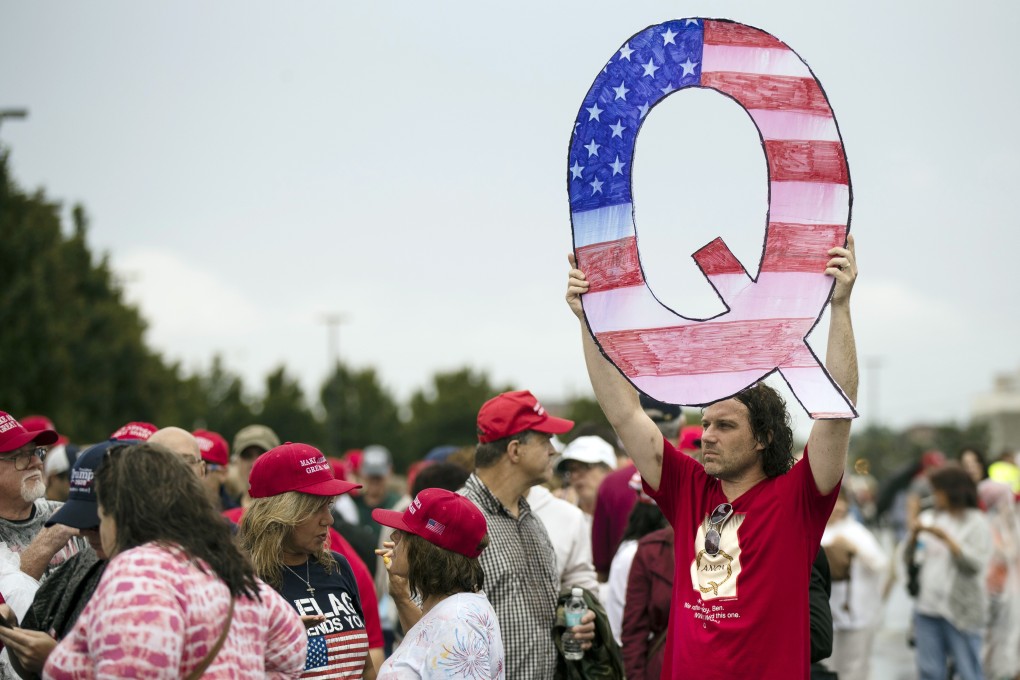Trump’s coronavirus test stirs QAnon conspiracy theories, prompting swift action from social media giants
- Platforms have long been under fire for allowing false information and discriminatory ideologies to spread on their platforms
- Some liberal commentators also questioned whether the news of Trump’s diagnosis was a ploy to shape an election campaign where the president is trailing in the polls

QAnon believers falsely distorted the news, saying the president is pretending to go into quarantine as part of a grand plan to take down the alleged human trafficking cabal. Trump has said he does not know much about the QAnon phenomenon but has appeared to condone its supporters, saying they are people who “love America” and “like me very much”.
YouTube and Facebook both said they immediately began monitoring for coronavirus diagnosis-related misinformation after Trump announced his positive test and that of first lady Melania Trump.
“Within minutes of their diagnosis being made public, our systems began surfacing authoritative news sources on our homepage, as well as in search results and watch next panels regarding the President and Covid-19,” YouTube spokesperson Alex Joseph said in a statement.
A Facebook spokesperson, who declined to be named because the situation is “rapidly evolving”, said in an email that the company is tracking the spread of conspiracy theories and will work to fact check and label misleading content.